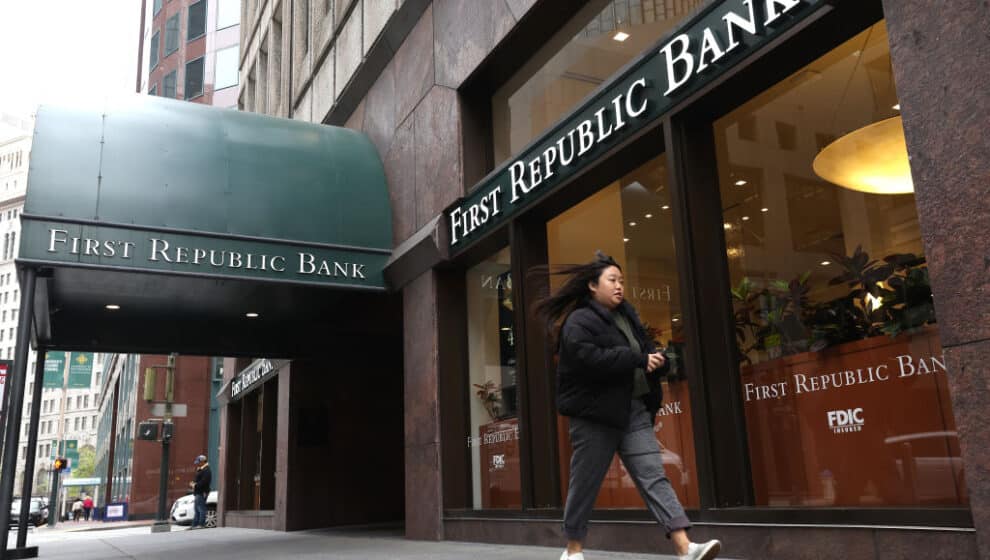After three bank collapses this year, more Americans and small business owners are worrying about how secure their finances are.
Key Details
- Around 48% of U.S. adults reported that they are worried about the security of their finances that they have stored in banks and other financial firms, according to a recent Gallup survey.
- Of those worried, 19% reported being “very” worried, and 29% were “moderately” worried. Around 50% reported being “not too worried” or “not worried at all.”
- Financial instability poses a greater risk for small business owners with fewer resources than large corporations. Unlike big businesses, these smaller companies are not likely to have reserves that will keep them afloat in an emergency.
- Gallup’s poll ended on April 25, meaning survey respondents gave their answers before the collapse of First Republic Bank.
Why it’s news
This year, three U.S. banks have collapsed, marking some of the largest bank failures in the country’s history. While many experts, including Warren Buffett, suggest that the U.S. has seen the last of its bank failures for a time, many Americans are worried about the safety of their money.
The last time Gallup surveyed Americans about the security of their money was in 2008—a time marked by multiple bank failures as the U.S. suffered a financial crisis. The survey findings were similar to American sentiment in 2008. The largest bank failure in U.S. history, the Lehman Brothers collapse, occurred in September 2008. Around that time, 45% of U.S. adults reported concern about their financial security.
While many Americans worry about the safety of their bank accounts, small business owners face a particular difficulty. Small banks are most likely to work alongside small business owners. While these community banks have not met the same difficulties as regional banks, business owners may still struggle to get lines of credit through these institutions due to high interest rates.
Somewhere between 86% and 94% of small businesses use credit to cover everything from payroll to rent. Most of the financing for that credit comes from community banks. Some business owners are responding to financial uncertainty by moving their accounts to larger banks, and others are diversifying their accounts.
While larger banks are often viewed as a safer bet, small banks also have FDIC coverage and, in some cases, may be safer than national banks. Community banks generally have less than $10 Billion in assets and serve a limited geographic area.
Unlike national banks, these institutions typically work with safer investments like local businesses, meaning they do not deal with some riskier investments national banks may take on.
